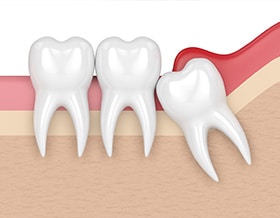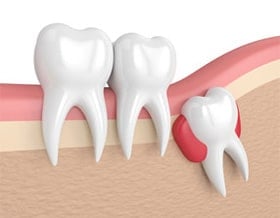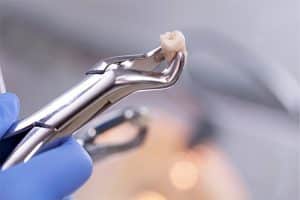Prevent infection and inflammation
An impacted wisdom tooth can cause gum inflammation. When inflammation sets in, it can spread quickly to surrounding areas. When a part of the wisdom tooth erupts, it creates a flap of gum tissue that can lodge food particles and become a breeding ground for bacteria. This increases the risk of infection.
Avoid injury to adjacent teeth
When there is not enough room in the mouth to accommodate wisdom teeth, they begin to jostle for space with adjacent teeth. They push against the second molars, causing bone loss, pain and cavities. It is important to have your wisdom tooth removed before it starts affecting perfectly healthy teeth.
Keep headaches away
When wisdom teeth emerge late in life, they cause crowding and tooth movement, which has been shown to contribute to headaches. If the arrival of your wisdom tooth is marked by sinus pain, pressure and congestion, then it is advisable to have it removed to prevent recurring headaches.
Bad Breath & Foul Taste
Impacted wisdom teeth may make it difficult to open and close your mouth. You may experience bad breath and an unpleasant taste in your mouth. Your jaw may cramp up and you will find it difficult to chew certain types of food. These symptoms can disturb your personal and professional life.
Stop cysts and tumors
In rare cases, impacted wisdom teeth can cause cysts or tumors in the jawbone. The benign cysts may require the removal of tissue and bone. To avoid this complication and destructive oral health problems, have our experienced dentist perform painless wisdom tooth extraction at our state-of-the-art North York clinic.
Make cleaning easy
Cleaning around your third molars is difficult. If you cannot manage the additional oral hygiene, it can compromise your overall oral health. A simple wisdom tooth extraction can help maintain your oral health in the present and future.







